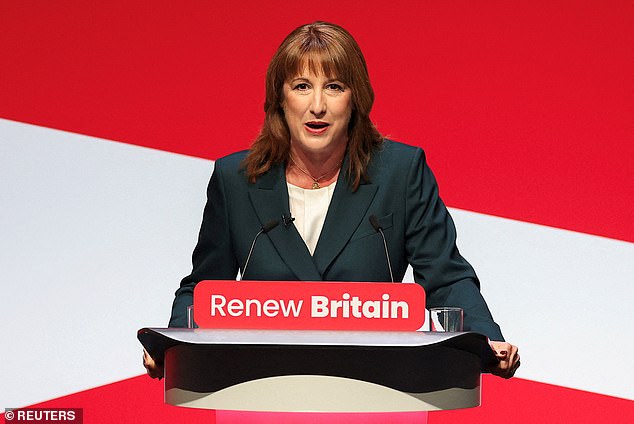Brits who resort to private healthcare have been warned they could be hammered in the Budget.
Rachel Reeves is understood to be looking at targeting so-called ‘Limited Liability Partnerships’ – LLPs – as she desperately tries to bring in more cash.
But although supporters stress that applying a national insurance to the arrangements would catch the wealthiest lawyers and bring in £2billion, doctors have raised concerns that it will have a wider impact.
Extra costs will ‘inevitably’ be passed on to millions of people who use private healthcare, according to the BMA.
Numbers going private have been rising amid widespread dissatisfaction with problems accessing GPs and long NHS waiting lists.
Estimates have suggested eight million people – around 11.8 per cent of the population – are covered by insurance policies. Many others pay for treatment ad hoc.

Your browser does not support iframes.
It emerged yesterday that Ms Reeves is looking at tightening rules on partnerships as she looks to fill a £20billion to £40billion black hole in the public finances next month.
Currently the structures are not subject to employer national insurance contributions of 15 per cent, so have big tax advantages and are used by about 190,000 professionals.
A report by CenTax – pointed to by government insiders – suggested changing tax rules for all kinds of partnerships.
It estimated the change would hit 96 per cent of GP partners, raising £250 million for the Treasury, although it flagged the measure could be offset to avoid increasing their tax bill.
Any such raid would inflame tensions between the medical profession and the government, amid bitter clashes and strike threats over pay.
However, the rumours seemed to take the Department of Health by surprise yesterday.
After that it emerged that the Treasury is focusing on LLPs – which most NHS GPs are restricted from using.
The Daily Mail was told last month that the Chancellor was considering levying VAT on private healthcare, but that prospect was immediately killed off by Health Secretary Wes Streeting in interviews.
A BMA spokesman said: ‘Extending employer National Insurance to LLPs would deal a serious blow to doctors working in private practice within LLP structures.
‘Applying a new 15 per cent charge for LLPs would substantially increase the tax rate for these doctors beyond 40 per cent, highly-likely eroding the financial viability of many small, doctor-led practices.
‘This added cost will inevitably be passed on to patients, making private care less accessible and discouraging doctors from continuing or entering private practice.’
Dan Neidle of Tax Policy Associates said it would be be ‘insane’ to tax partners in LLPs but not other types of partnership.
He suggested it would be ‘unfair’ to make ‘some people pay more tax than others for a random reason’.
LLPs would also likely respond by converting to general or foreign partnerships.
‘Can’t believe they’d do that,’ Mr Neidle added about the proposal.
LLPs cannot presently legally hold General Medical Services (GMS) or Personal Medical Services (PMS) contracts.
The BMA said GP locums could in theory be affected if they have grouped together into an LLP.
Share or comment on this article:
Reeves ‘coming for middle Britain’s private healthcare’: Chancellor’s £2bn Budget tax attack on partnerships ‘will push up costs outside the NHS’
